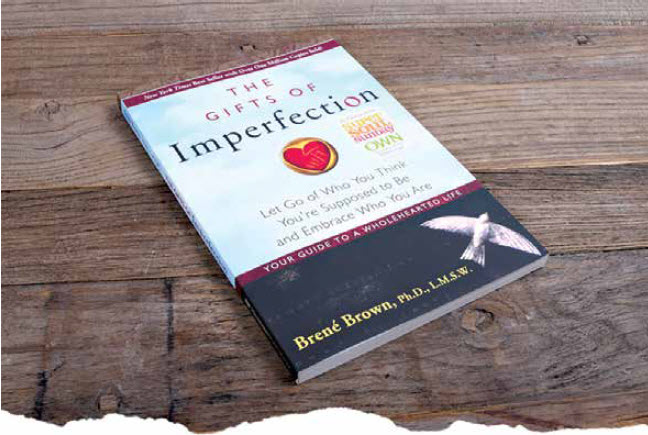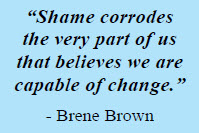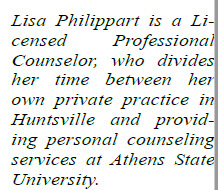 By: Lisa Philippart
By: Lisa Philippart
Shame is a powerful emotion. The Merriam Webster Dictionary defines shame as “a condition of humiliating disgrace or disrepute.” Those who experience shame (which is everyone) often describe feelings of worthlessness, embarrassment, and humiliation. The causes of shame have been linked most often to trauma. When something terrible happens to a person, that person may feel a lack of control, either internally related to emotions, or externally involving people, situations, or events. Shame can also be associated with addiction struggles or mental illness. In fact, shame is so powerful that it can impact the whole trajectory of a person’s life. Because of shame’s power, it is important to understand the specific impact it has on people. From there we will identify and learn ways out of shame’s shadow.

There are several ways that shame has an impact on peoples’ lives. Many people who live with shame avoid relationships, struggle with vulnerability, and disconnect from community. Research has shown that shame leads people to hide both physically and emotionally. Those who feel ashamed attempt to conceal themselves from the world and refrain from developing friendships. Sadly, those who feel shame are never really able to share their true selves with the world, mainly because they don’t allow themselves to be authentic. Those who feel shameful are prone to suppressing their emotions. This is especially true among women. People who feel ashamed of who they are or of something that has happened to them tend to keep their thoughts and feelings all wrapped up inside. Unfortunately, when these folks allow themselves to feel anything, it is usually feelings of worthlessness, depression, and anxiety. Imagine, being constantly ashamed and attempting to live out a difficult emotional and mental battle every day.

Those struggling with shame are less likely to take healthy risks. One way that shame has been defined is as a defense against being devalued by others. In other words, shame keeps people from making decisions that would lead others to devalue them. These people will only make decisions about jobs, relationships, and school that they feel certain will end well. A high level of shame in people will more than likely cause relapses into problem behaviors. For example, research shows that people who struggle with alcohol addiction are more likely to relapse back into drinking if they experience shame. It becomes the chicken and the egg scenario…does drinking lead to feelings of shame or does shame drive people to drink? People who are ashamed of their behavior sometimes purposefully continue in that behavior because they don’t believe that change or healing is possible. Shame can be the reason some people choose not to take steps toward healing.

Fortunately, there are ways out of the shame trap. Begin by seeking out relationships and committing to vulnerability with safe people. Find those you trust and who will support you when you are struggling. Shame begins to disappear when it is shared in a safe place. Don’t keep everything inside. Move out of your head and into the open world. You can choose to write about your shame and share your story. Create artwork that represents your shame or your healing. Join a support group. Once you get the shame out in the open, you can begin to develop some self-compassion. To do this, consider what you would say to a friend who was feeling the same things that you feel. You can choose to respond to yourself with love and care and concern, just as you would respond to others with your attention and compassion.
When was the last time you stepped out of your comfort zone and took just one small risk? Here are the options if you attempt something difficult: You will either succeed and find hope that you can do more than you thought, or you might fail and realize that failure isn’t the end of the world. Either way you begin to find healing from your shame. You begin to believe that healing is possible. Believe that you can choose to make good choices over and over again until your life is completely changed.
If you believe that shame is controlling your life, reach out to a mental health professional. For some excellent self-help resources, check out any book by Brene Brown, and particularly, The Gifts of Imperfection and I Thought It was Just Me.
By: Lisa Philippart
Licensed Professional Counselor


